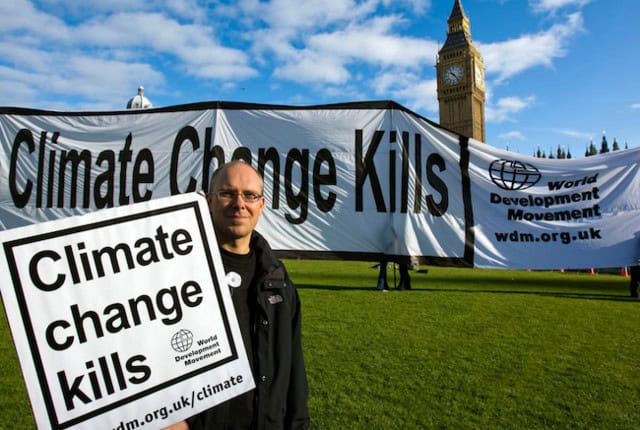
Negotiators at the U.N. climate talks got down to the nitty-gritty task Tuesday of finalizing the rules for the Paris accord, a landmark agreement by countries three years ago to curb global warming.
The 2015 accord set a goal of keeping average global temperature increases well below 2 degrees Celsius (3.6 Fahrenheit) by the end of the century. Scientists say the deal’s most ambitious goal — limiting the rise to 1.5 degrees C (2.7 C) — is still feasible, but increasingly challenging.
The two-week meeting brings together diplomats from almost 200 countries, often with differing agendas. Some, such as the small Pacific islands, are pressing for urgent and drastic action, especially from developed countries, to reduce greenhouse gas emissions. Others, such as the European Union, agree on the need to cut emissions but want to ensure all countries contribute a fair share.
The U.S. is also taking part, despite announcing last year that it’s pulling out of the Paris accord.
Decisions on crunch issues, which may include financial aid for poor countries, are expected to be left to ministers when they gather at the domed conference venue in the southern Polish city of Katowice next week.
U.N. Secretary-General Antonio Guterres, who issued a dramatic appeal to governments Monday to confront the threat of unchecked climate change, said he hopes the event in Poland will serve as a stepping stone for a meeting of leaders he is convening on the sidelines of next year’s General Assembly.
Guterres said he hopes to have progress by then on efforts to mobilize $100 billion to help developing nations reduce their emissions and adapt to climate change.
“The capacity to come to the summit with a clear perspective on how that can be delivered and with a transparent approach to the financial dimension, that is absolutely crucial for our work to be effective,” he said.
Across town from the meeting, a brass band led celebrations Tuesday honouring the patron saint of miners. Katowice has a long history of coal mining, an industry that experts say can’t continue for much longer if global goals to cut carbon emissions are to be met.
Elsewhere in Katowice, a U.S. campaign group called the Heartland Institute held a meeting criticizing the widespread consensus among scientists that global warming is a man-made phenomenon . About 10 people attended the event, where speakers claimed — despite plentiful evidence to the contrary — that temperature increases recorded in recent decades are due to increased activity from the sun.


